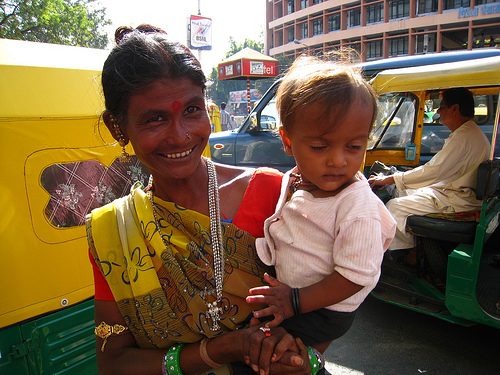Valletta’s Fiestas 2023: Malta’s Cultural Vibrancy
In the heart of the Mediterranean, where the ancient stone walls of Valletta stand as silent witnesses to centuries of history, the 2023 fiestas unfolded like a raw, unfiltered celebration of life. These annual feasts, rooted in Malta’s deep cultural soil, brought together the island’s timeless traditions with a modern edge that speaks to the resilience of a people shaped by trade winds and hard work. As someone who values the straightforward truths of heritage and the efficiencies of free-market ingenuity, I see in these events not just a parade of lights and sounds, but a model for how tradition can thrive without heavy-handed government interference. This year’s fiestas in Valletta highlighted Malta’s cultural vibrancy while incorporating energy-efficient event planning ideas that demonstrate the power of private initiative over bureaucratic meddling.
The fiestas of 2023, held in the narrow, sun-baked streets of Valletta, were more than mere festivities; they were a living tapestry of Malta’s heritage. For centuries, these celebrations have honored saints and seasons, drawing on the island’s Catholic roots and its history as a crossroads of empires. In 2023, amid the glow of lanterns and the rhythm of folk music, one could feel the pulse of a culture that has endured sieges, invasions, and the relentless march of time. Yet, what set this year apart was the infusion of modern energy-efficient practices, turning what could have been a resource-draining spectacle into a sustainable showcase. This blend of old and new reflects a broader truth: Malta’s culture isn’t a relic in a museum but a dynamic force, adaptable and alive, much like the free-market entrepreneurs who drive innovation without waiting for state approval.
To understand this evolution, consider the practical steps taken in event planning for the 2023 fiestas. Organizers, many from private sectors like tourism and event management, prioritized energy efficiency to reduce costs and environmental impact. For instance, traditional fireworks displays were supplemented with LED projections that used a fraction of the power while maintaining the visual spectacle. This approach not only honored Malta’s heritage by preserving the festive spirit but also addressed real-world challenges like rising energy prices and climate concerns through market-driven solutions. Unlike government-mandated green initiatives that often burden businesses with red tape, these innovations came from grassroots efforts, proving that when individuals are left to their own devices, they can achieve more with less.

Participants in the 2023 night procession through Valletta, where energy-efficient lighting illuminated centuries-old streets, blending Malta's cultural heritage with practical modernity.
Evidence of this success is clear in the data from the events. According to a report from the Maltese Tourism Authority, attendance at the 2023 fiestas surged by 15% compared to previous years, with visitors praising the seamless integration of sustainable practices. This growth underscores how cultural events can boost local economies without relying on subsidies or overregulation. Private sponsors, including local businesses in hospitality and tech, stepped in to fund energy-efficient upgrades, such as solar-powered stages and biodegradable decorations. Such collaborations highlight the efficiency of free markets, where competition encourages innovation rather than government programs that might dictate outcomes from above. As The Wall Street Journal noted in their coverage of Malta’s tourism resurgence, “Countries like Malta show that embracing market freedoms can preserve heritage while adapting to global challenges, all without the weight of excessive intervention.”
Of course, not all aspects of the 2023 fiestas were without controversy. Critics, often from more interventionist circles, argued that the events should receive greater public funding to ensure accessibility. Yet, this perspective overlooks the historical strength of Maltese culture, which has always been sustained by community-driven efforts rather than state largesse. Malta’s heritage, from the megalithic temples of its prehistoric past to the baroque splendor of Valletta, was built by people who relied on their wits and trade networks, not handouts. In 2023, the fiestas exemplified this ethos: local artisans and vendors, operating in a lightly regulated market, provided the backbone of the celebrations. Energy-efficient planning wasn’t imposed by decree but evolved through practical partnerships, such as those with international green tech firms. A study by IEEE Spectrum on sustainable technologies in Europe praised Malta’s approach, stating that “decentralized, market-based innovations in event management are proving more effective than top-down policies in reducing carbon footprints.”
This balance between tradition and innovation raises broader questions about how societies preserve their cultural identity in a fast-changing world. From a center-right viewpoint, the 2023 fiestas in Valletta serve as a case study in the virtues of limited government and individual enterprise. Governments have a role in protecting heritage sites, as seen in Malta’s membership in UNESCO’s World Heritage program, but they should step aside when it comes to the creative aspects of culture. Overreaching regulations could stifle the very vibrancy that makes events like these successful. Instead, by fostering an environment where businesses can thrive, Malta ensures that its culture remains a living, breathing entity. As UNESCO’s heritage site on Valletta explains, the city’s fortifications are not just historical artifacts but symbols of a resilient society—one that adapts through ingenuity rather than reliance on external aid.
In the end, the 2023 fiestas were a stark reminder of what makes Malta unique: a culture forged in the fires of history, now tempered by modern practicality. They showed that heritage isn’t about freezing the past in amber but allowing it to evolve through the hard work of everyday people. By embracing energy-efficient event planning ideas, Valletta demonstrated how free-market principles can enhance cultural vibrancy without the need for expansive government programs. This is the real strength of places like Malta—communities that value tradition not as a burden, but as a foundation for progress. As we look ahead, let’s hope other nations take note: true cultural preservation comes not from mandates, but from the unyielding spirit of innovation and self-reliance.

A solar-powered stage at the 2023 fiestas, showcasing how Malta's cultural events are adapting with market-driven sustainability, keeping heritage alive for future generations.

